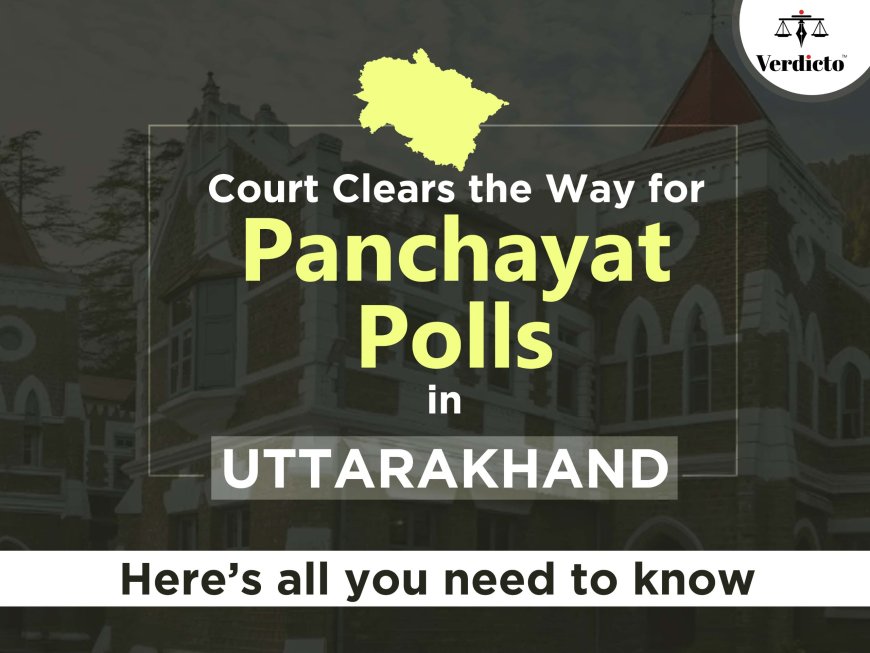Uttarakhand HC Allows Panchayat Polls Amid Reservation Row
Uttarakhand High Court lifts stay on panchayat elections, allowing polls to proceed on a revised schedule amid ongoing legal scrutiny over the reservation roster. Voting set for July 25 & 28, with results on July 31.

The Uttarakhand High Court has lifted the stay it had earlier imposed on the upcoming panchayat elections, clearing the way for the democratic process to proceed as scheduled. A division bench led by Chief Justice G. Narendar and Justice Alok Mahara issued the order on June 27, 2025, while hearing a batch of petitions alleging irregularities in the reservation roster for rural body elections.
Background: Legal Challenge to Reservation Roster
The legal dispute began when Ganesh Dutt Kandpal from Bageshwar filed a petition challenging the Uttarakhand government's notifications dated July 9 and July 11, which introduced a new reservation rotation system for panchayat seats. Kandpal argued that certain seats had been repeatedly reserved for the same category across four consecutive terms, violating the principle of rotation and limiting opportunities for other eligible communities.
Several similar petitions followed from across the state, with petitioners claiming that the continued reservation of certain seats for the same communities violated Article 243 of the Constitution and defied earlier Supreme Court directives.
High Court's Initial Stay and Subsequent Relief
Responding to these petitions, the High Court imposed a stay on June 23—just weeks ahead of the originally scheduled panchayat elections on July 10 and July 15, with vote counting on July 19. However, in its latest order, the court acknowledged that the number of reservations in question was small compared to the total number of seats and cited recent village boundary changes (delimitation) that led to the creation of new panchayats.
The court found these factors sufficient to lift the stay and directed the State Election Commission to revise and issue a new election schedule. Additionally, the court instructed the state government to submit a detailed response to the raised concerns within three weeks. The next hearing in the matter has been scheduled for July 28, 2025.
Article 243 and Panchayati Raj System
Article 243, introduced under the 73rd Constitutional Amendment Act of 1992, forms the foundation of the Panchayati Raj system in India. It mandates the formation of panchayats at the village, intermediate, and district levels, bringing rural governance under the justiciable part of the Constitution. The provision also includes reservation norms and mandates regular elections, independent of state government interference.
The Act has both mandatory and discretionary provisions. Compulsory features include the creation of panchayats and regular elections, while states retain discretion on voluntary features such as the powers and responsibilities of panchayats.
State Government’s Stand
Defending its position, the Uttarakhand government informed the court that changes in the reservation roster were based on recommendations from the National Commission for Backward Classes. The state argued that the revisions were essential to reflect the latest data and ensure fair representation in line with constitutional provisions.
Revised Election Schedule
Following the court's clearance, the State Election Commission announced a revised schedule for the panchayat elections. The elections will now be held in two phases on July 25 and July 28, with vote counting scheduled for July 31, 2025. The filing of nominations is set to begin on July 2, providing candidates with ample time to prepare.
Conclusion
The High Court’s decision has provided much-needed clarity and allowed the democratic process in Uttarakhand’s rural governance to move forward. While concerns over the reservation roster remain under judicial consideration, the upcoming elections are set to proceed under the revised timeline, ensuring continuity in grassroots governance across the state.







